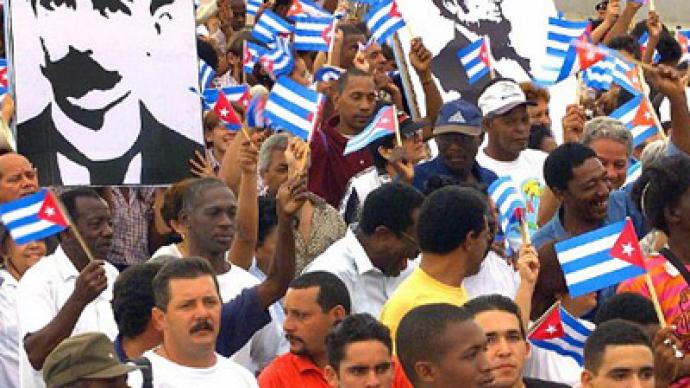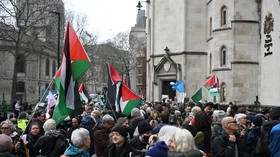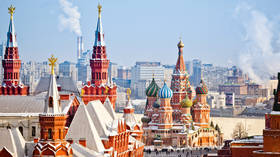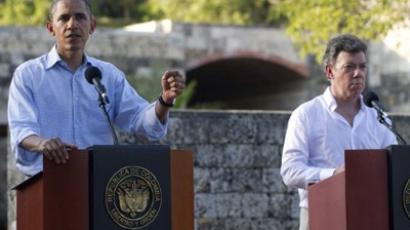Cuba decries US theft of govt funds

Large chunks of Cuban funds held by the US as part of the blockade against the island nation have been stolen, reports Cuban newspaper Granma. Castro’s government accuses the US of siphoning millions to indemnify anti-Cuban activists.
The newspaper says it has evidence of repeated expropriations over the years that have been eating away at the “frozen” funds.
The Cuban National Treasury says that the US has a total of $245 million of the nation’s funds that could now be under threat.
They claim that funds confiscated as a result of the “laws and regulations” of the blockade were not frozen and “had been stolen.”“During a number of years money and assets belonging to Cuban citizens and companies have been repossessed as part of an economic war with the Caribbean nation,” writes the publication.
As well as monetary assets, the US has also seized inheritances and awards given to Cuban citizens in international competitions and sporting events.
The article cites four cases in which the US government released Cuban funds to indemnify family members of individuals who had carried out “anti-Cuban activities.”
According to the report, between the years of 1996 and 2006 money has been extracted from the Cuban funds on four separate occasions, totaling $170 million.
In October of 1996, President Clinton ordered $1.2 million in Cuban funds to be released to families of members of the anti-Castro group “Brothers to the Rescue” who were shot down by the Cuban military.
The group was founded in 1961 and dubs itself as a humanitarian organization aimed at assisting raft refugees emigrating from Cuba to the United States. The Cuban government on the other hand regards "Brothers to the Rescue" as a terrorist group and has accused them of numerous incursions into Cuban airspace.
Again in February of 2001, President Clinton approved the transfer of another $96 million of Cuban government funds to indemnify families of the organization.
In April of 2005 the Bush administration handed over $198 million dollars to Miami resident of Cuban origin Ana Margarita Matinez by way of compensation. In 2001, a Miami court ruled that she had been the victim of torture and sexual abuse supposedly carried out by a Cuban agent.
In response to a ruling by a federal judge in New York in November 2006, bank JP Morgan Chase transferred a total of $72 million to the families of Anderson MacCarthy and Ray Weininger, who were shot down by Cuba in the 1961 Bay of Pigs invasion.
Along with Iran, Sudan and Syria Cuba is currently classified as a “state sponsor of terrorism” and as such is subject to financial sanctions on the part of the US.
The blockade against the Caribbean nation was imposed in 1960 after the Cuban government nationalized the property of US citizens and corporations. According to the Cuban Democracy Act the embargo will be maintained until the country begins a shift towards “democratization and greater respect for human rights."
The blockade constitutes a violation of international law and has cost Cuba an estimated $975 billion since its creation. The UN General Assembly has consistently condemned the embargo as illegal and called for its end every year since 1992.
The embargo has had significant consequences on the Cuban economy, among other things causing medical shortages that have led to the outbreak of diseases on the island.













